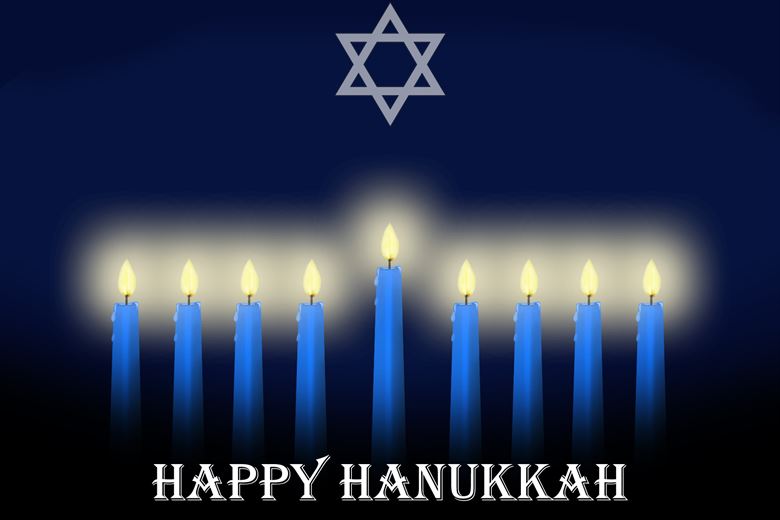What is Hanukkah?
Hanukkah comes every year and can be described as a holiday for showing praise and appreciation for the Maccabee’s glorious overthrowing of their Syrian-Greek oppressors. The story highlights their recapturing of Jerusalem and their realization that they only had enough oil to light a candle for one night, but it ended up burning for eight. This year, Hanukkah spans from Dec. 22 to Dec. 30.
Lighting the Candles
The menorah is the nine-branched candle holder that’s used to commemorate the eight days the oil burned. Each night a candle is lit, and it ends with all eight being lit on the last night. The extra branch and candle is what is used to light these eight candles. Traditionally, they are lit for one half hour after nightfall and placed in a setting near a window where it can be seen by passersby, or across from a mezuzah near the doorway. Meanwhile, all work should come to a stop and everyone should gather around the menorah and be present.
Hanukkah Blessings
There are two traditional blessings that are said during each night that represents giving thanks and acknowledging the Hanukkah miracle. Another prayer is said on the first night called the Shehechiyanu, and is meant to thank God for being alive during this time. Different prayers can be said depending on your heritage and whether you’re an Ashkenazi Jew or a Sephardic Jew, and both have different meanings. Additionally, there’s a multitude of songs to sing to celebrate the holiday.
Food and Games
Latkes (potato pancakes) and sufganiyot (jelly doughnuts) are amongst the most popular foods to eat during these eight days. Fried foods are central in Hanukkah celebration and there are tons of variations you can put into these recipes. Gelt is another important food that makes its way into games, too. It’s a foil wrapped chocolate that’s in the shape of coins and is used to gamble while playing games with a dreidel. A dreidel is a four-sided top with a hebrew letter on each side: gimmel, hey, shin, and nun. How it works is that a player will spin the top and whatever side it lands on determines the outcome for them. If the player lands on gimel, they get all the coins (or gelt) in the pot; if it lands on hei, they get half the pot; if it’s shin, they have to put one coin into the pot; and if it’s nun, they get nothing and give nothing. Gift giving is completely optional and has evolved into having a bigger presence in today’s society when traditionally, children were given smaller gifts such as nuts and gelt.

